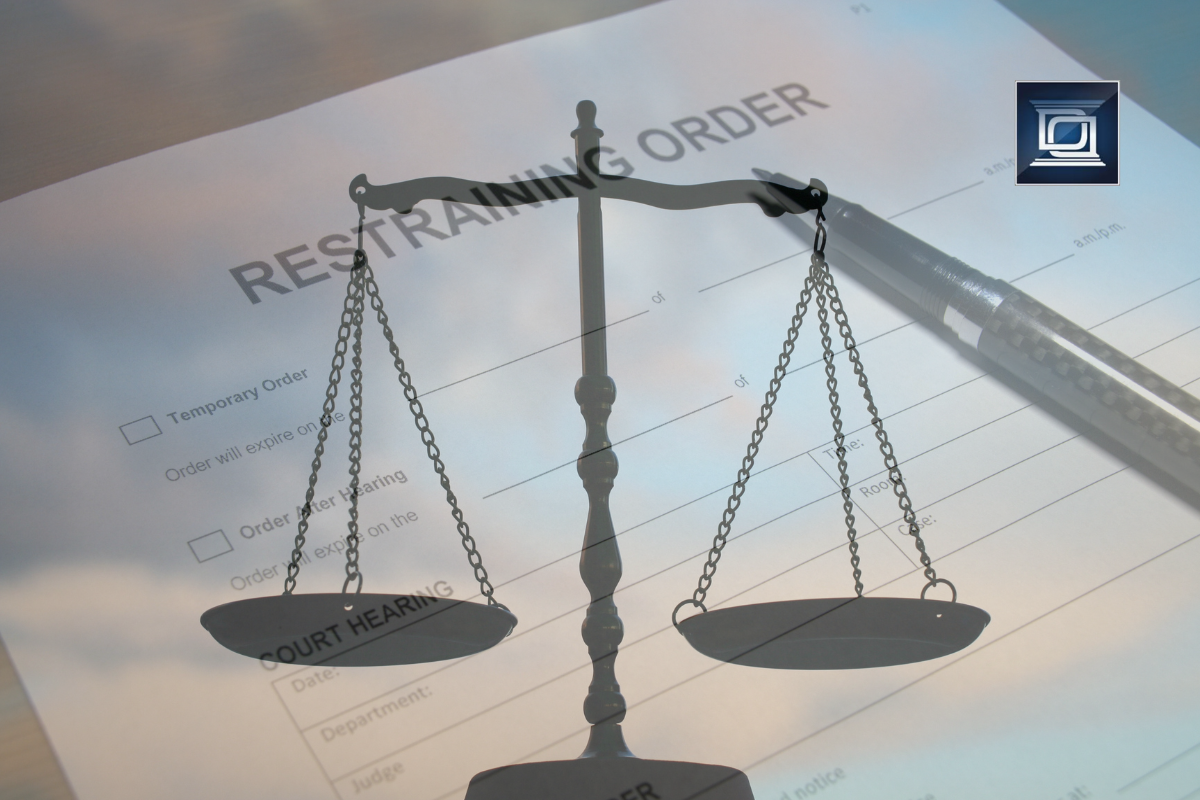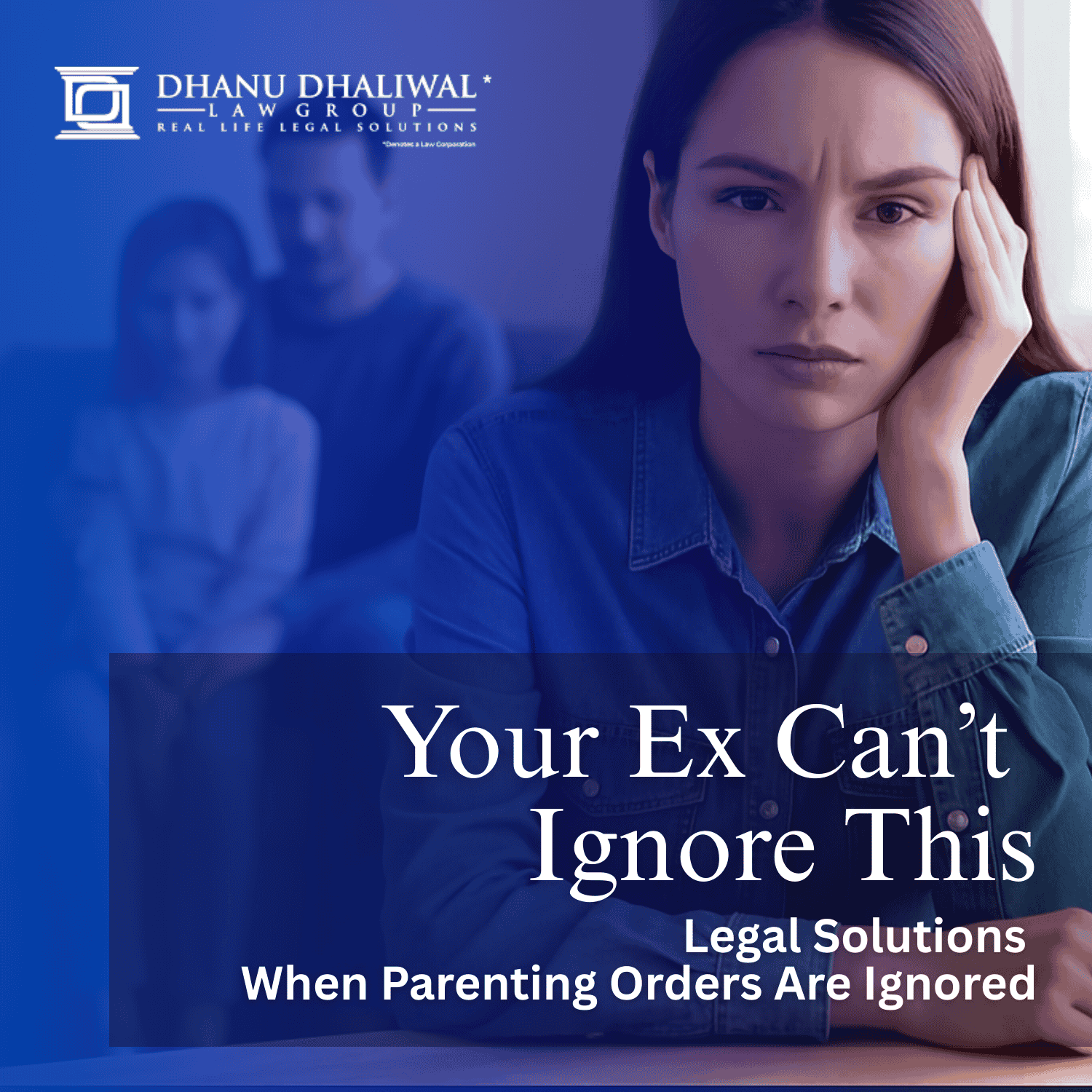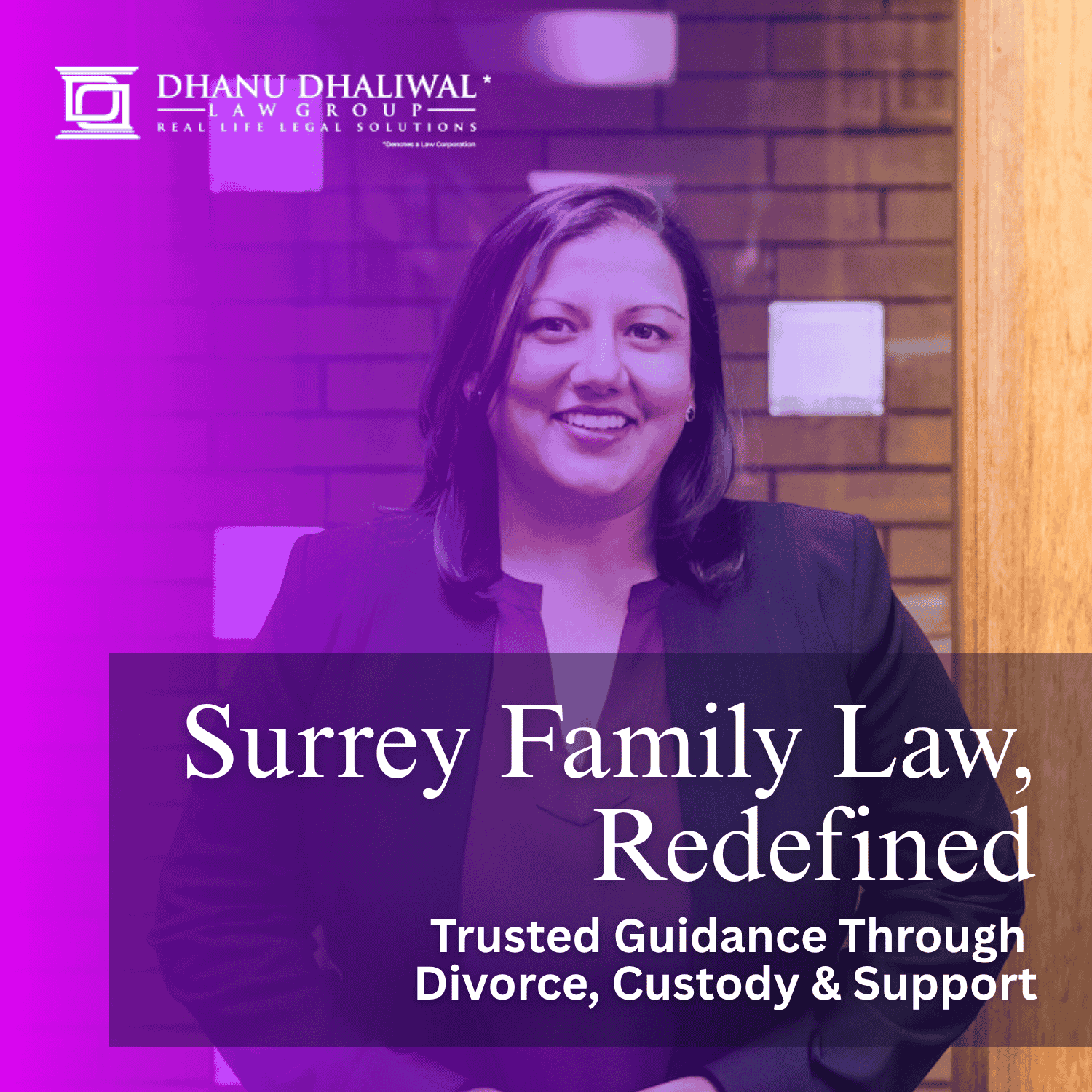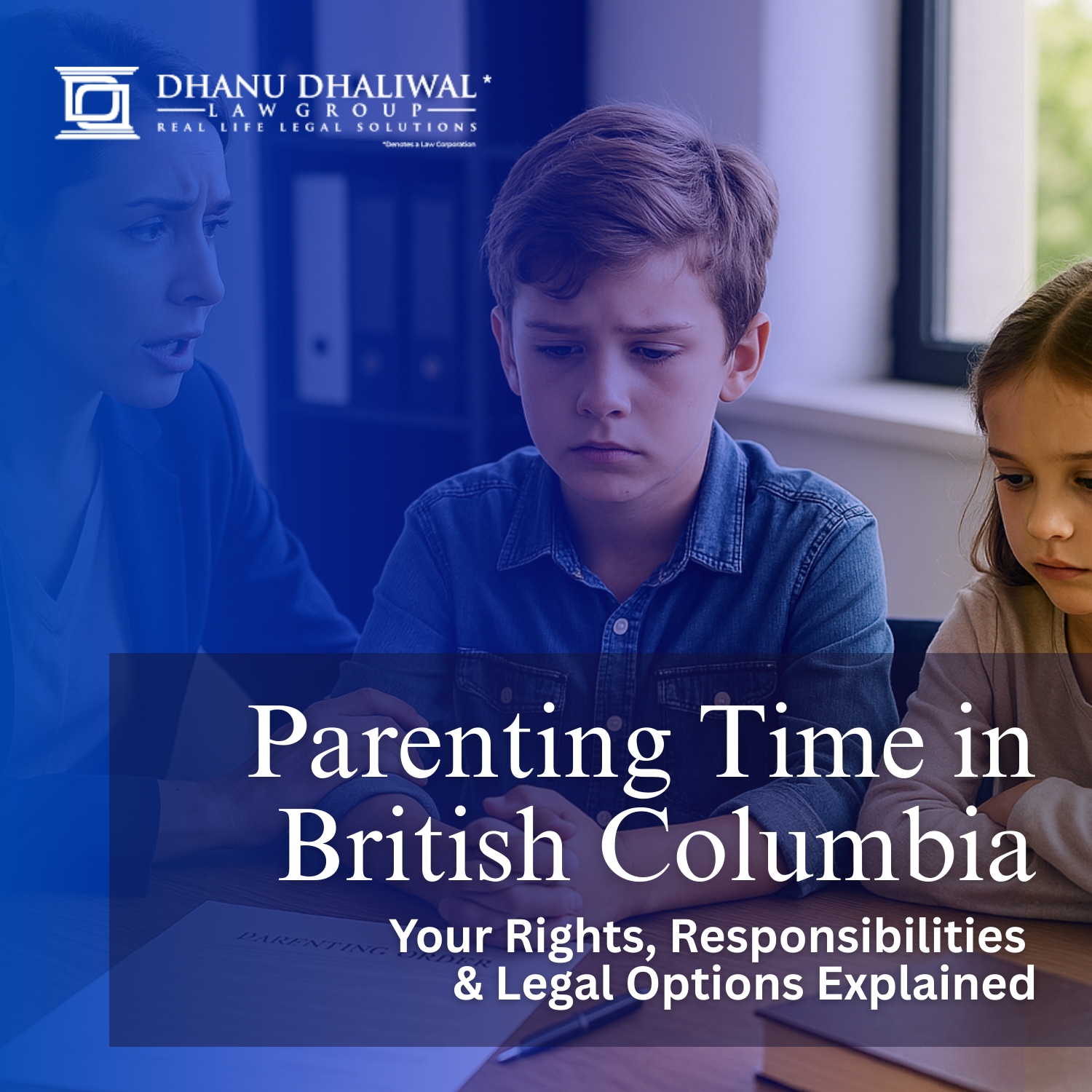You’ve probably heard of a restraining order before.
They’re commonly understood to be a way to legally stop someone from interacting with you or coming near you.
As you could probably guess, real-life restraining orders are a little more complicated. In fact, here in Canada, they’re not actually called restraining orders.
A “restraining order” is actually called one of two things:
- A protection order, or
- A peace bond
More specifically, there are family law protection orders and peace bonds. Both of these are sometimes referred to as “protection orders.”
So what’s the difference?
We’ll walk you through both types of protection orders, what they both entail, and when it’s appropriate to use one.
We can also help you get a protection order if you are in need of one.
The family lawyers at Dhanu Dhaliwal Law Group are especially positioned to help you with your protection order, as we practice both family law and criminal law.
Call us now if you need assistance with your peace bond or protection order, or fill out the contact form on this page.
If you are in immediate danger, please contact the police before contacting a lawyer or attempting to get more information about protection orders.
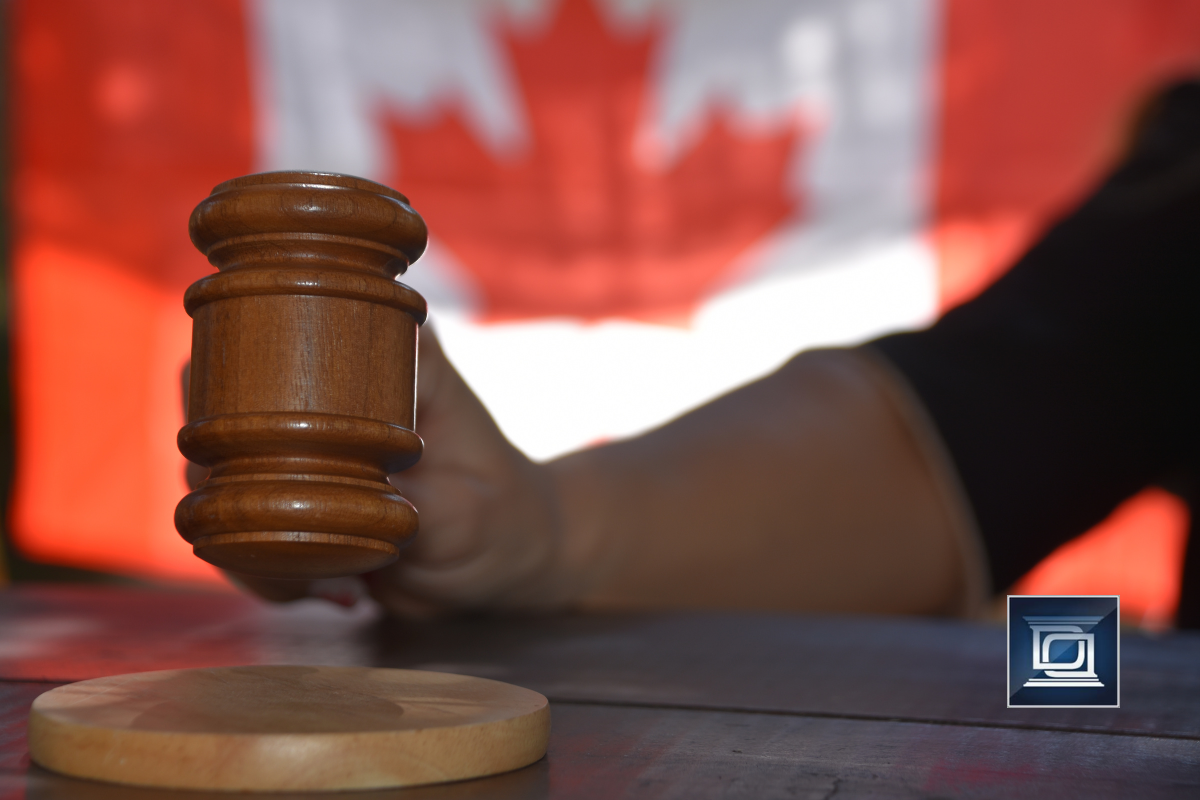
What is a Protection Order?
A protection order is a court order that is made by a judge. This order is intended to protect one person from another by creating a list of conditions that, if broken, result in legal consequences, like jail time.
“A protection order lists conditions for a named individual to follow that may require that individual to have no contact, or limited contact, with the person being protected or that person’s children and/or family. The conditions may include not going to the protected person’s home or workplace, no phone calls, emails, or letters, and no messages through a friend or relative. The order may include other conditions as well.”
–Information on Protection Orders gov.bc.ca
Family Law Protection Order
As we mentioned, family law protection orders are often referred to as simply “protection orders.”
Family law protection orders are a part of civil law. A family law protection order is not a criminal charge, and it does not require the involvement of the criminal justice system.
Family law protection orders are given out by either the Provincial Court or the Supreme Court. You can apply for one through either of these courts.
As implied in the name, protection orders protect you from a family member. This family member can be a spouse, a blood relative, or even someone you are related to through marriage.
A step-by-step guide along with the forms required to apply for a family law protection order has been published by the Legal Aid BC.
Peace Bond
A peace bond is similar to a family law protection order, but differs in a few key ways.
A peace bond is issued under the Criminal Code of Canada, unlike a family law protection order. A peace bonds may also be called an “810 recognizance,” as this is the legal name for it.
Peace bonds function similarly to family law protection orders, but they can be used to protect you from anyone, not just family members.
Even though peace bonds are issued under the Criminal Code, they do not create a criminal record.
A criminal charge can only be pressed if the peace bond is broken or a crime is committed.
If you’re looking to get a peace bond, you can call the police to ask for one. You don’t need a lawyer to get a peace bond, and there is no fee.
If your application for a peace bond proceeds, the prosecutor (Crown counsel) will be involved. If there is a court hearing, it will be in criminal court, so it may benefit you to retain the services of a criminal lawyer, or a family lawyer.
The lawyers at Dhanu Dhaliwal Law Group are especially positioned to help you with your protection order, as we practice both family law and criminal law.
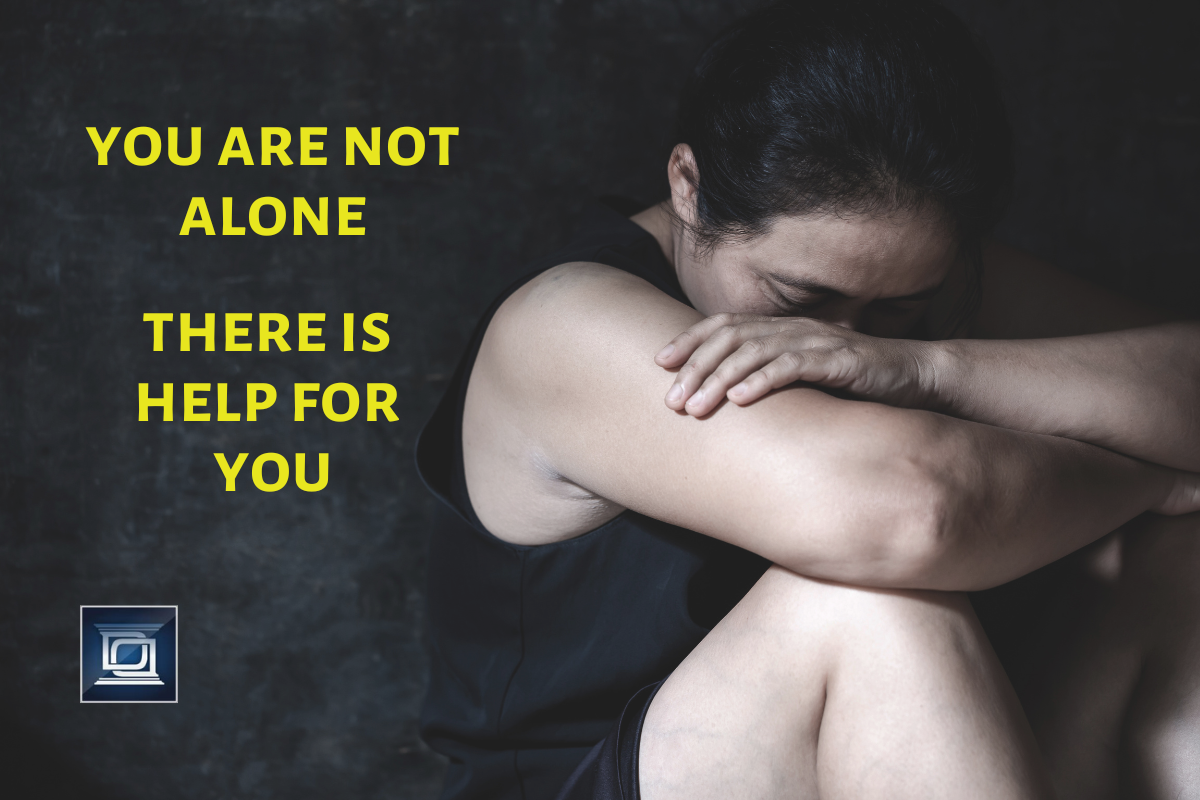
Protection Order Application Process
If you are seeking protection from a family member, you can apply for both a Family Law Protection Order and a Peace Bond at the same time.
Both types of protection orders are effective for one year from the date they are created, unless otherwise stated by a judge.
Peace bonds can be issued simply by contacting the police and requesting one.
Even though you do not have to apply to get one, a court will still look to determine whether your peace bond is valid.
The BC government website has this to say about eligibility for protection orders:
“For Peace Bonds, the court must determine if the fear of future harm is based on reasonable grounds. If the police don’t agree to send a report to Crown counsel asking for a peace bond application, you can consult a lawyer, or you can go to the court registry at the nearest courthouse and ask to speak to a justice of the peace. A justice of the peace can give you the documents you need to swear an ‘Information’ yourself. This process is further described on the People’s Law School website.”
“For Family Law Protection Orders, the court must determine that intimate partner violence is likely to occur and that an individual is at-risk. If the judge in family court denies your application for a family law protection order, speak to your lawyer or duty counsel about re-applying for the family law protection order or about getting a conduct order.”
“It is difficult to give advice on whether you may be granted a protection order but applying for one is an option if you feel it would increase your safety or security.”
An attorney can help you determine your eligibility for a peace bond or protection order. They can also increase your chances of getting one.
Speak to a lawyer at Dhanu Dhaliwal Law Group about a protection order today.
When Should I Get a Protection Order?
It may be in your best interest to get a protection order if you feel as though you or your family are in danger because of another individual’s actions, behavior, or explicit threats.
If you are in immediate danger, please contact the police before contacting a lawyer or attempting to get more information about protection orders.
Please understand that it is a crime for anyone, inducing a parent, spouse, sibling, or significant other to harass, stalk, or threaten you or your children. It is also a crime for another individual to damage your property, or assault you or your children, either physically or sexually. If any of these behaviors have occurred, we urge you to report this to the police.
We at Dhanu Dhaliwal Law Group wish you the best in the future, and we hope that if you are in danger a protection order or peace bond can help you keep yourself and any loved ones safe.

